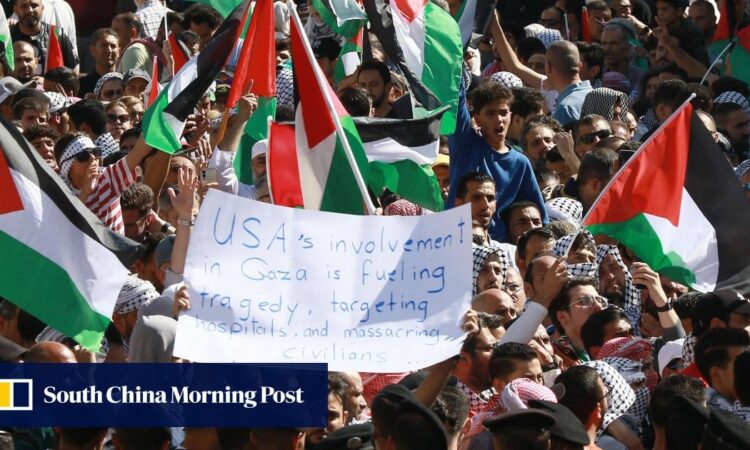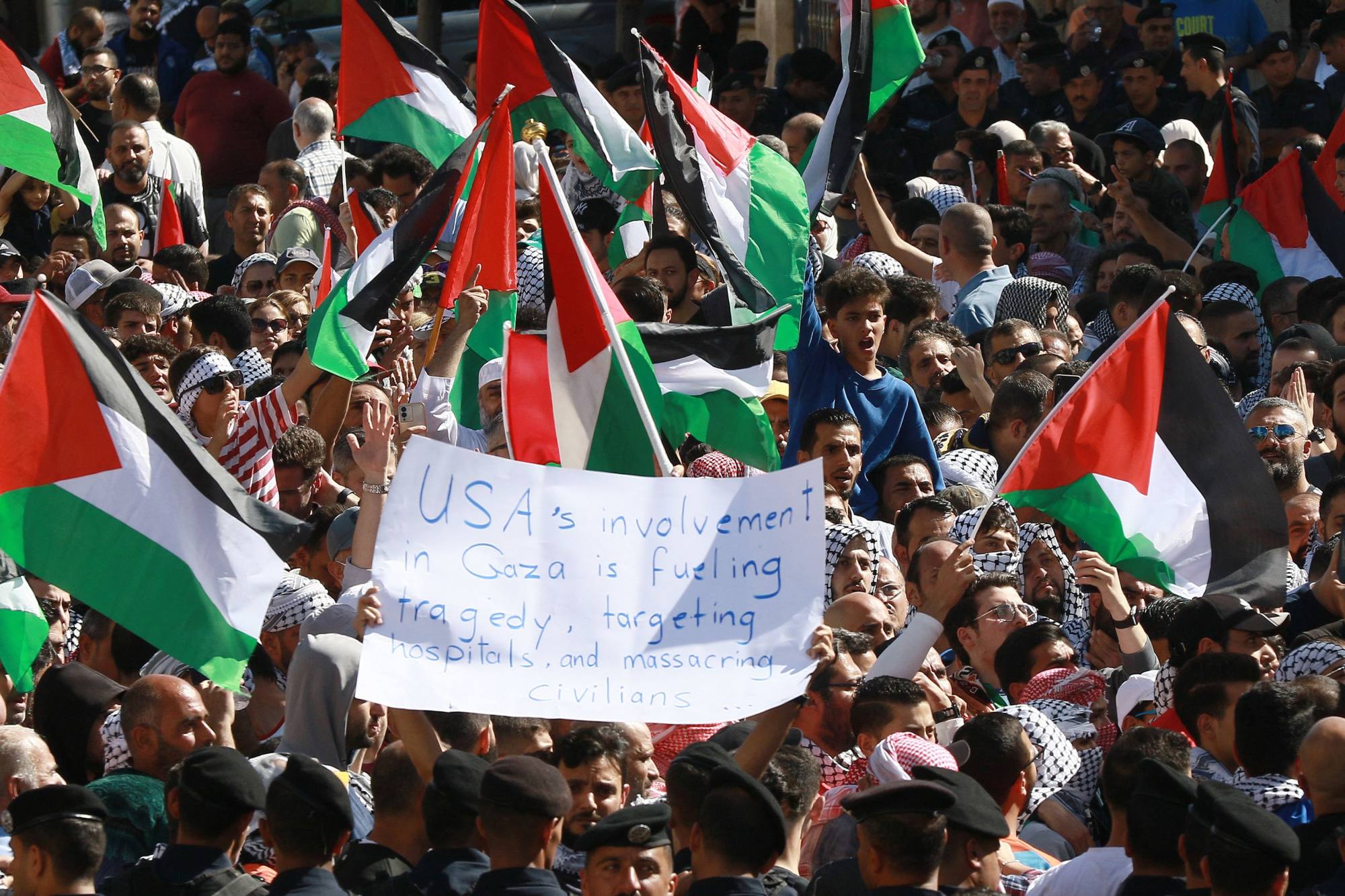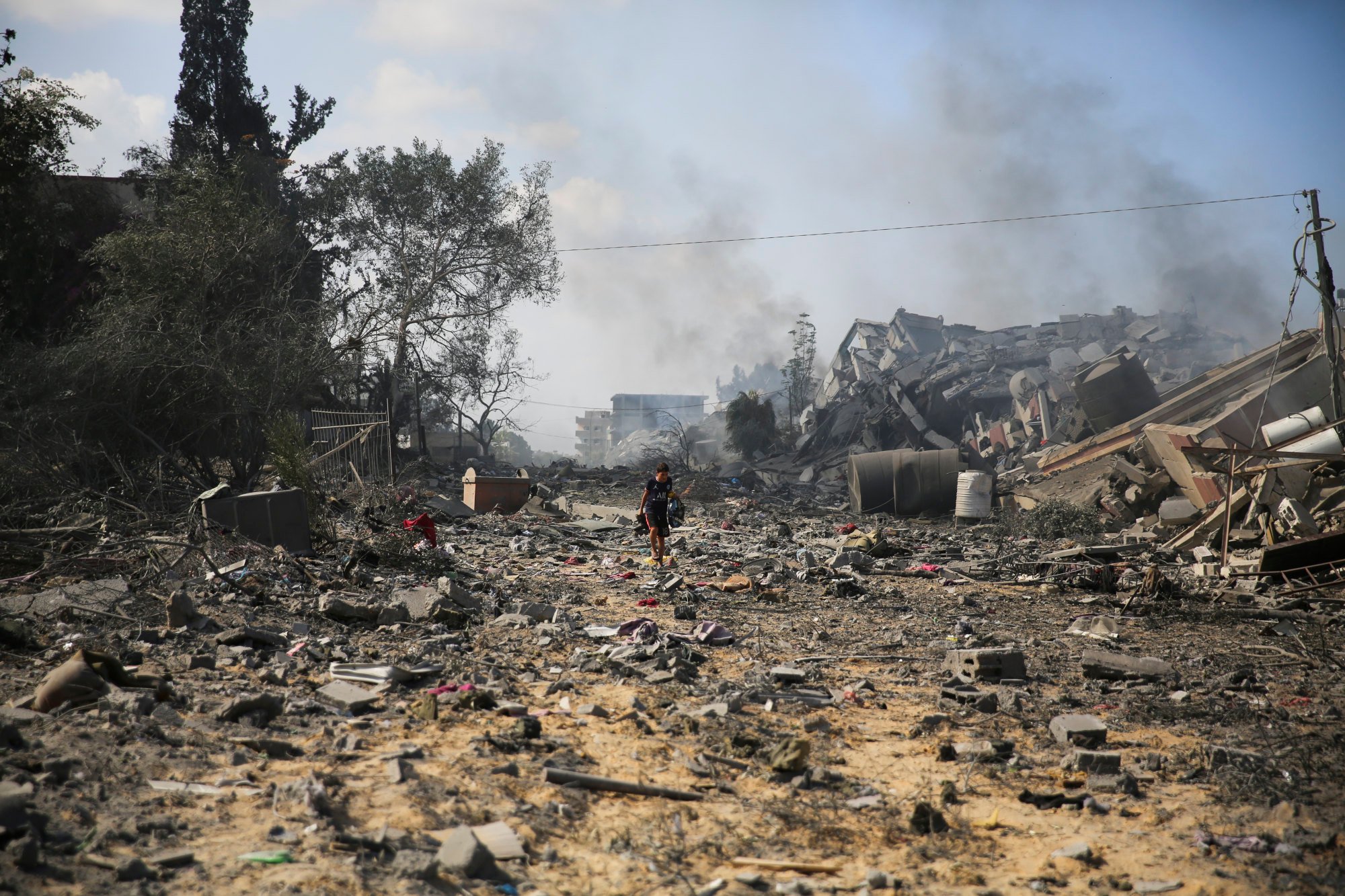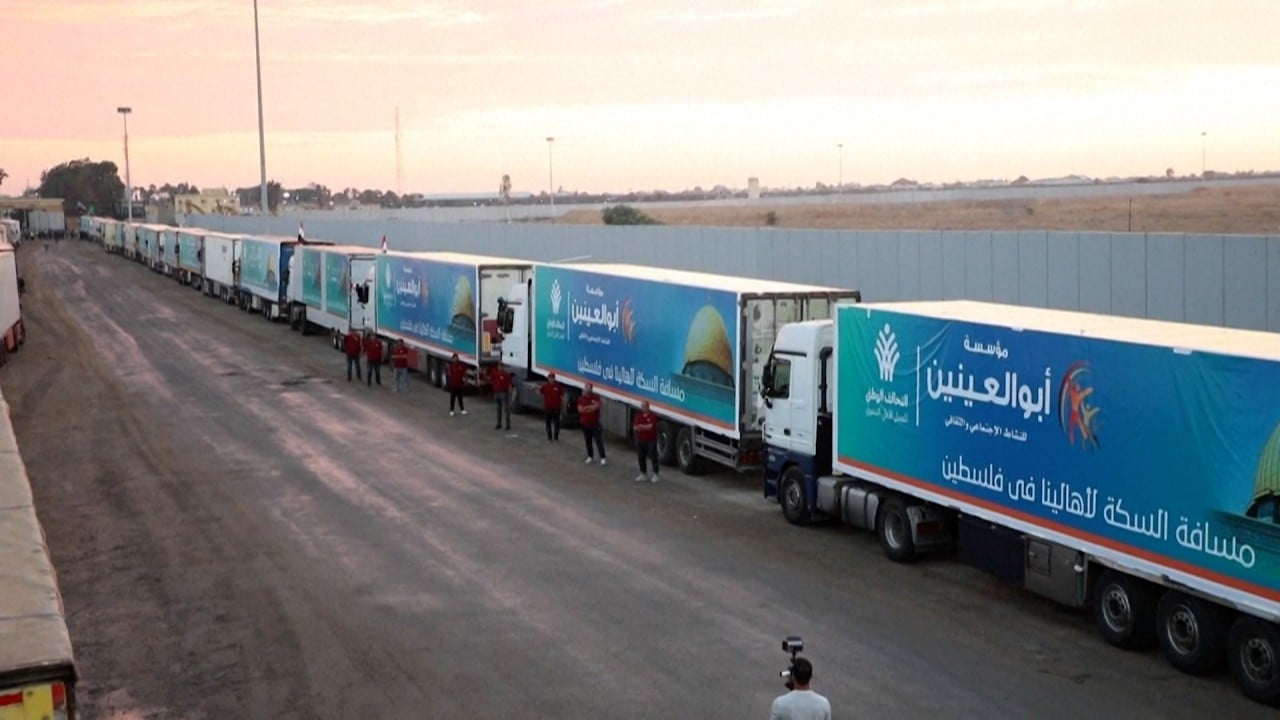
But with public opinion in Arab countries and Israel inflamed by the bloody conflict, work on the IMEC corridor is not expected to extend beyond Saudi Arabia for the foreseeable future.
According to reports emanating from a background briefing conducted by Saudi officials last week, the kingdom has “paused” negotiations with the US over a trilateral agreement in which Washington would provide it with security guarantees in return for normalising relations with Israel.
But Riyadh has led a pan-Arab crescendo of criticism, blaming Israel for the eruption of the Gaza conflict by saying the war is the consequence of its refusal to discuss Palestinian statehood.
Even Bahrain and the UAE, which normalised their relations with Israel under the 2020 Abraham Accords, have endorsed strongly worded statements against Israel and its Western supporters issued by the Gulf Cooperation Council and Organisation of Islamic Cooperation since the killing of scores of Palestinians at Gaza’s Al-Ahli hospital on Wednesday.
Like other Arab leaders, the Saudi crown prince is feeling the heat of public opinion both within the kingdom and across the wider Arab and Muslim worlds that it claims moral leadership of, analysts said.
Saudi Arabia is “a populous country with many citizens who are struggling economically and vast wealth inequality”, said Monica Marks, a professor of Middle East politics at New York University Abu Dhabi.
“Saudis are not as used to diversity and cosmopolitanism as Emiratis were before the Abraham Accords, and religious conservatism there was nurtured longer and stronger in the past than it had been in the UAE, complete with antisemitic messaging about Jews,” she said.
That all means that the domestic risks of formally normalising ties with Israel “are higher in Saudi Arabia than they were here in the UAE”.

The Jordanian section of IMEC is even more vulnerable to public opinion because most of the kingdom’s population is ethnically Palestinian, including Queen Rania.
Likewise, outrage in Israel over the war ignited by the attack launched by Palestinian militant group Hamas on October 7 means that there is currently no public appetite for greater economic and political integration with Arab nations supportive of the Palestinian cause.
“Surging public anger” in Israel and Jordan is likely to make any form of closer regional connectivity difficult in the short term, “even if it is pitched as technocratic rather than political in nature”, according to Ulrichsen.
Instead, Saudi Arabia and the UAE, which are already moving forward with the Gulf Railway to increase connectivity across the Arabian Peninsula, “may well decide to focus on their own IMEC-related projects for the time being, especially if they facilitate greater volumes of trade with India”.
However, analysts told This Week In Asia that the underlying economic and political motivations of the nations involved in the IMEC had not changed.
“The project is a strategic project and will serve the security and create redundancy for the supply chain,” said Mohammed Baharoon, director general of the Dubai Public Policy Research Institute, an independent UAE think tank.
While the current mood in the region is certain to have an impact on current work to develop the IMEC, “I doubt that it will affect the overall value of the project and therefore its validity”, he said.
Why Qatar, Egypt and Turkey are struggling to mediate the Israel-Gaza war
Why Qatar, Egypt and Turkey are struggling to mediate the Israel-Gaza war
Nonetheless, the outcome of the conflict “can have an impact” on the existing trilateral relationship between the UAE, Israel and India, and hinder the development of similar such proposed three-way arrangements between the UAE and Israel with South Korea and Japan.
These projects are “an investment in stability and using economic integration as an enabler of social and political integration as the bedrock of peace”, Baharoon said.
“The outcome of the conflict today, regardless of who started it, is that pace is far less attainable today as it was a month ago.”
For the US, the corridor was meant to have built on efforts to normalise relations between its close ally Israel and the Gulf monarchies and to integrate their economies.
The Abraham Accords also led to the establishment of diplomatic relations between the Jewish state and Bahrain, Morocco, Sudan and the UAE.
This subsequently led to the formation of other regional economy-driven minilateral arrangements like the I2U2 between India, Israel, the UAE and the US.
Washington is also aiming to integrate them into a new regional security architecture to guard against aggression by Iran, Hamas and other members of the so-called Resistance Front based in Lebanon, Syria, Iraq and Yemen.

By seeking to hijack the leadership role of the Palestinian cause from the Arab autocracies, Tehran and its allies have succeeded in undercutting American efforts.
Similarly, the ramping up of their conflict with Israel undermines the Gulf monarchies’ objective of de-escalation in the region, as reflected by the China-brokered agreement in March to restore Saudi Arabia’s diplomatic relations with Iran after a seven-year hiatus.
“Clearly, the current state of war in the region will slow things down in the immediate term,” said Gedaliah Afterman, head of the Asia policy programme of the Abba Eban Institute for Diplomacy and Foreign Relations at Reichman University in Tel Aviv.
“However, the underlying strategic motivations at the base of the IMEC are still relevant for each of the parties involved.”
As for Israel’s involvement, the ongoing conflict is likely to “put a hold on visible steps towards integration of Israel into an economically active and successful Middle East”, he said.
Yet, “we do expect the intensive contacts behind the scenes” between Saudi Arabia and Israel, the UAE and the countries that participate in the Abraham Accords to continue.







